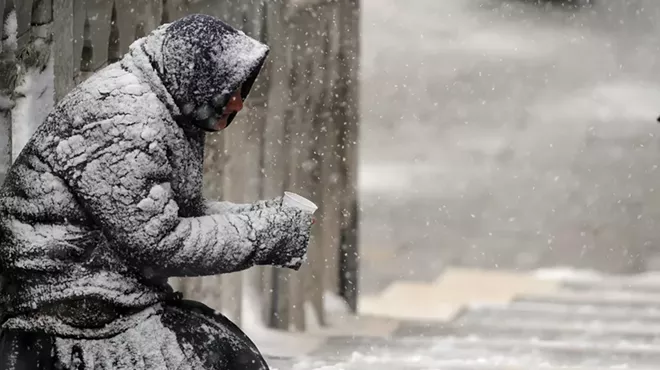Gov. Gretchen Whitmer has declared a state of emergency in response to the sub-zero temperatures that are expected to hit Michigan this week.
On Monday evening, Whitmer signed the state of emergency declaration as a surge of arctic air travels to southeast Michigan, bringing with it negative temperatures and potentially record-breaking windchill temperatures.
“Keeping Michiganders safe during this stretch of dangerously cold temperatures is our priority,” Whitmer said in a statement.
“Such widespread, extreme conditions have not occurred in Michigan for many years and it is imperative that we are proactive with record-low temperatures being predicted by the National Weather Service," she said. "Wind chills are predicted as low as 50 degrees below zero in many places, such as metro Detroit which is especially unaccustomed to these temps.”
The state warns residents that frostbite can occur in as little as ten minutes of exposure to extreme cold.
It has issued the following warnings to help educate people about the dangers that can occur in such cold conditions. Residents in need of assistance during extreme cold are urged to call 211.
• Limit your time outside. If you need to go outside, wear layers of warm clothing. Watch for signs of frostbite and hypothermia.
• Signs of frostbite include: loss of feeling and color around the face, fingers and toes, numbness, white or grayish-yellow skin, firm or waxy skin.
• Signs of hypothermia include: shivering, exhaustion, confusion, fumbling hands, memory loss, slurred speech or drowsiness.
• Avoid carbon monoxide poisoning. Only use generators and grills outdoors and away from windows. Never heat your home with a gas stovetop or oven.
• Reduce the risk of a heart attack. Avoid overexertion when shoveling snow.
• Check on neighbors. Older adults and young children are more at risk in extreme cold.
• Pets are also at risk for cold weather injuries and should be kept indoors.
• If travel is necessary, keep a full tank of gas and an emergency preparedness kit in your vehicle. Put warm clothing, such as gloves, blankets and hats, and a cell phone charger in your kit.
The state also suggests taking measures to prevent frozen pipes and what be done in the event that frozen pipes need to be thawed:
To prevent frozen pipes:Stay on top of Detroit news and views. Sign up for our weekly issue newsletter delivered each Wednesday.
• Keep garage doors closed if there are water supply lines in the garage.
• Open kitchen and bathroom cabinet doors to allow warmer air to circulate around the plumbing. Be sure to move any harmful cleaners and household chemicals up out of the reach of children.
• When the weather is very cold outside, let the cold-water drip from the faucet served by exposed pipes.
unning water through the pipe - even at a trickle - helps prevent pipes from freezing.
• Keep the thermostat set to the same temperature both during the day and at night. By temporarily suspending the use of lower nighttime temperatures, you may incur a higher heating bill, but you can prevent a costlier repair job if pipes freeze and burst.
• If you will be going away during cold weather, leave the heat on in your home, set to a temperature no lower than 55° F.
To thaw frozen pipes:
• If you turn on a faucet and only a trickle comes out, suspect a frozen pipe. Likely places for frozen pipes include against exterior walls or where your water service enters your home through the foundation.
• Keep the faucet open. As you treat the frozen pipe and the frozen area begins to melt, water will begin to flow through the frozen area. Running water through the pipe will help melt ice in the pipe.
• Apply heat to the section of pipe using an electric heating pad wrapped around the pipe, an electric hair dryer, a portable space heater (kept away from flammable materials), or by wrapping pipes with towels soaked in hot water. Do not use a blowtorch, kerosene or propane heater, charcoal stove, or other open flame device.
• Apply heat until full water pressure is restored. If you are unable to locate the frozen area, if the frozen area is not accessible, or if you cannot thaw the pipe, call a licensed plumber.








